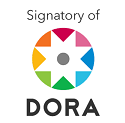Game strategies in first grade students
Abstract
The objective of this study was to analyze the incidence of pedagogical games strategies in the strengthening of active participation in first grade students in Manabí, Ecuador, during the year 2025. The study was framed in a qualitative approach, corresponding to a documentary type design, supported by the review of theoretical sources. As a result, these strategies have allowed the design of playful activities adapted to the needs of children, encouraging communication, collaboration and teamwork, as well as fostering motivation, interest and self-confidence. In conclusion, the implementation of pedagogical games has constituted an effective strategy to dynamize the teaching-learning process in the first levels of basic education, favoring the integral development of students and consolidating motivating school environments.
Downloads
References
Aliriad, H., Adi, S., Manullang, J., Endrawan, I. & Satria, M. (2024). Improvement of motor skills and motivation to learn physical education through the use of traditional games. Physical Education Theory and Methodology, 24(1), pp. 32-40. Disponible en: https://n9.cl/9dnr8
Bermello, M., Arteaga, N., Navia, N. & Rezabala, Y. (2023). La pedagogía del amor y la ternura para la humanización de la práctica educativa. EPISTEME KOINONIA, 6(12), pp. 219–236. Disponible en: https://n9.cl/a40v9
Buenaño, A. (2023). Relación entre las actividades lúdicas y la coordinación motriz en estudiantes de básica elemental. Revista UNIANDES Episteme, 10(4), pp. 480-499. Disponible en: https://n9.cl/d3qim
Chamorro, D., Hurtado, C., Chamorro, Y. & Isea, J. (2024). Comprehensive approaches to prevent clinical illness and promote mental health in children and adolescents. Health Leadership and Quality of Life [Internet], 3:.568, pp.1-17. Disponible en: https://n9.cl/7wcx6
Dorouka, P., & Kalogiannakis, M. (2024). Teaching nanotechnology concepts in early-primary education: an experimental study using digital games. International Journal of Science Education, 46(13), pp. 1311-1338. Disponible en: https://n9.cl/3vju2
Guevara, G., Madariaga, L., Reyes, C. & Zuleta, C. (2023). Gamificación para el desarrollo del aprendizaje de las operaciones matemáticas en tercero básico. Información tecnológica, 34(4), pp. 31-44. Disponible en: https://n9.cl/h4l0r
Hurtado, C., Villa, M., Caicedo, L. & Isea, J. (2024). A plithogenic statistical approach to digital security measures and emotional health in childhood and adolescence. Journal of Fuzzy Extension and Applications, 5(Special Issue), pp. 25-39. Disponible en: https://n9.cl/au5u0
Isea, J., Gómez, I. & Comas, R. (2023). Interaction between university extension and curricular innovation: a collaborative and co-creative perspective in higher education. Revista Conrado, volumen 19 (3), pp. 469-481. Disponible en: https://n9.cl/bnb225
Laca, L., Díaz García, M. & Piscoche Botello, C. (2024). Gamificación como estrategia para mejorar la motivación en estudiantes universitarios: Revisión sistemática. Horizontes, 8(35), pp. 2596–2609. Disponible en: https://n9.cl/slhby
Martín, L., Palacios, A. & Gallego, Ó. (2022). ¿Jugamos o gamificamos? Evaluación de una experiencia formativa sobre gamificación para la mejora de las competencias digitales del profesorado universitario. Alteridad. Revista de educación, vol. 17 Núm. 1, pp. 36-49. Disponible en: https://n9.cl/qyppu
Mendoza, A. (2025). Los programas de gamificación en la educación. Revisión sistemática. EPISTEME KOINONIA, 8(16), pp. 209–226. Disponible en: https://n9.cl/slidqi
Meneses, J., Isea, J. & Infante, M. (2024). Bienestar emocional y psicológico en niños, niñas y adolescentes desde el estado ecuatoriano. Verdad Y Derecho. Revista Arbitrada De Ciencias Jurídicas Y Sociales, 3(especial 3 UNIANDES), pp. 68-73. Disponible en: https://n9.cl/bkl0k
Mustafa, F. Mai Nguyen, H. & Gao, X. (2024). The challenges and solutions of technology integration in rural schools: A systematic literature review. International Journal of Educational Research, volume 126, 102380, pp. 1-14. Disponible en: https://n9.cl/2gt3qt
Nofriansyah, N., Wardiman, J., & Rahmi, Y. (2024). The effect of the team games tournament (tgt) learning model on students' achievement in economics education. Journal of Economics and Economic Education, 1(2), pp. 144-155. Disponible en: https://n9.cl/8vpf2l
Oliveira, W., Hamari, J., Shi, L., Toda, A. M., Rodrigues, L., Palomino, P., & Isotani, S. (2023). Tailored gamification in education: A literature review and future agenda. Education and Information Technologies, 28(1), pp. 373-406. Disponible en: https://n9.cl/r9uvz
Vera, M., Mendoza, A. & Beltrán, L. (2024). Intervención de la motivación docente en el logro de los objetivos de aprendizaje: Percepción de los docentes. Revista gestión de las personas y tecnología, 17(20), pp. 1-20. Disponible en: https://n9.cl/7dx0p
Yaman, H., Sousa, C., Neves, P. & Luz, F. (2024). Implementation of game-based learning in educational contexts: challenges and intervention strategies. Electronic Journal of e-Learning, 22(10), pp. 19-36. Disponible en: https://n9.cl/3f6i4y
Zeybek, N., & Saygı, E. (2024). Gamification in education: Why, where, when, and how? —A systematic review. Games and Culture, 19(2), pp. 237-264. Disponible en: https://n9.cl/ezuz2
Copyright (c) 2025 Mariela Leonor Cuje-Cevallos

This work is licensed under a Creative Commons Attribution-NonCommercial-ShareAlike 4.0 International License.
LICENCIA DE CONTENIDO
Creative Commons
Atribución-NoComercial-CompartirIgual 4.0 Internacional (CC BY-NC-SA 4.0)
Política propuesta para revistas que ofrecen acceso abierto
Aquellos autores/as que tengan publicaciones con esta revista, aceptan los términos siguientes:
Usted es libre de:
Compartir — copiar y redistribuir el material en cualquier medio o formato
Adaptar — remezclar, transformar y construir a partir del material
La licenciante no puede revocar estas libertades en tanto usted siga los términos de la licencia
Bajo los siguientes términos:
Atribución — Usted debe dar crédito de manera adecuada, brindar un enlace a la licencia, e indicar si se han realizado cambios. Puede hacerlo en cualquier forma razonable, pero no de forma tal que sugiera que usted o su uso tienen el apoyo de la licenciante.
NoComercial — Usted no puede hacer uso del material con propósitos comerciales.
CompartirIgual — Si remezcla, transforma o crea a partir del material, debe distribuir su contribución bajo la lamisma licencia del original.
No hay restricciones adicionales — No puede aplicar términos legales ni medidas tecnológicas que restrinjan legalmente a otras a hacer cualquier uso permitido por la licencia.
DERECHOS DE AUTOR Y PERMISO
La revista permite que los autores tengan los derechos de autor sin restricciones.
La revista permite que los autores conserven los derechos de publicación sin restricciones; y garantizan a la revista el derecho de ser la primera publicación del trabajo.


















